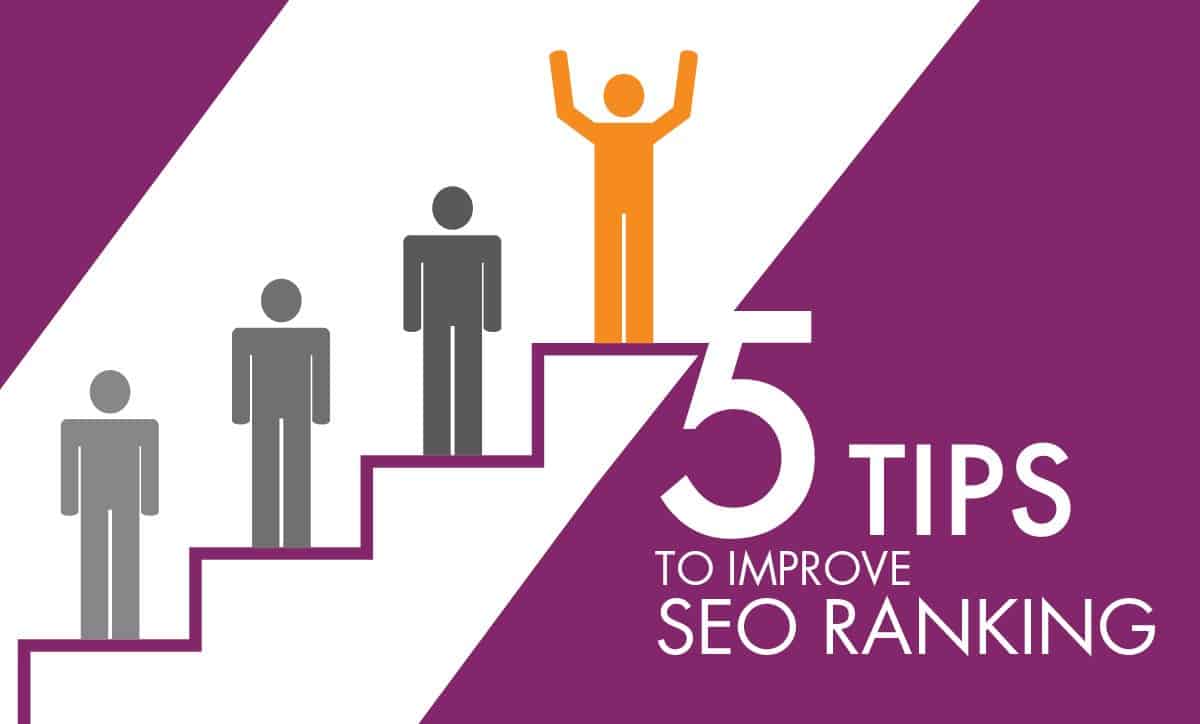5 Most Important SEO Tips for Higher Rankings
Are you looking to boost your website’s search engine rankings? If so, then SEO is the key. Search engine optimization (SEO) is a process that helps websites rank higher in search results and gain more visibility online. But it can be tricky to get started with SEO, especially if you don’t have an experienced team of pre vetted marketing experts on hand.
That’s why we want to share our 5 most important SEO tips for higher rankings. With these simple strategies, you can make sure your website is optimized correctly and start seeing better results in no time!
Important SEO Tips for Higher Rankings

1. Start with an SEO Audit
An SEO audit is the first step toward building a successful search engine optimization (SEO) strategy. It involves identifying issues and opportunities with your website that can be addressed to improve your rankings.
An SEO audit provides valuable insight into your website’s strengths and weaknesses, providing key data points to guide you through the optimization process. By following an SEO audit checklist, you can automatically identify technical problems such as broken links, slow page loading times, duplicate content, or poor indexing by search engines. You should also analyze your website’s content and keyword strategy to ensure it’s optimized for search engine crawlers.
Additionally, you should review past campaigns to see what worked and what didn’t in order to refine future efforts for greater success. By performing an SEO audit regularly, you can continually monitor your website’s performance, identify potential issues before they become a problem, and make sure you stay ahead of the competition.
2. Use the Best SEO Software
Using the right SEO tools is a key part of having an effective search engine optimization strategy. It helps you monitor your website’s performance, track keyword rankings, analyze competitor data, automate reporting, and much more.
Using the best SEO automation software helps you streamline many repetitive SEO tasks, like SERP monitoring, and backlink tracking. It can also help you identify technical issues such as broken links and slow page loading times. It can also assist in analyzing your website’s content and keyword strategy to ensure it is properly optimized for search engines.
Furthermore, automated monitoring and alerts help keep track of the performance of your website so you can identify potential issues before they become a problem. Automating these processes saves time that would otherwise be spent doing manual work, allowing you to focus on other parts of your SEO strategy such as content creation or link-building campaigns.
Overall, using the right SEO software is essential to any successful search engine optimization (SEO) strategy. It allows you to automate monitoring and alerts so that you can stay ahead of potential issues before they become a problem, saving time and allowing you to focus on other aspects of your strategy for maximum success.
3. Do Your Keyword Research
Keyword research is an important part of any successful SEO strategy. By researching and targeting the best keywords for your website, you can optimize your content and increase your rankings in the search engine results pages (SERPs).
Keyword research also helps you create more relevant content that resonates better with potential customers and drives more traffic to your website. When using keyword research tools, you should focus on finding keywords that are relevant to your business and have a good search volume. You should also consider the competition level for each keyword – it’s important to target keywords with lower competition so that you can rank higher in the SERPs.
Additionally, you should consider long-tail keywords as they tend to be more specific and thus more likely to convert potential customers into actual customers. Once you’ve identified the best keywords for your website, it’s time to start optimizing your content for those keywords. This means incorporating them naturally into titles, headings, meta descriptions, URLs, images, and other elements of your page content. It also means using synonyms and related words to ensure that Google understands what your page is about.
Finally, make sure that all of your pages are well-structured with a logical hierarchy of headings and sections – this will help ensure that the search engines understand how individual web pages interlink with one another within a website’s structure. By spending time doing thorough keyword research and implementing it into your content strategy, you can make sure that potential customers will find what they’re looking for when they use a search engine such as Google or Bing.
This will help drive more organic traffic to your website while increasing rankings in the SERPs – both key components of any successful SEO strategy!
4. Address the Search Intent

When planning content outlines, it is important to address the search intent behind potential keywords and look at the SERPs for further insight. Looking through the SERPs will provide an indication of what searchers are looking for and the elements that content should contain in order to rank well. By examining the current SERPs, you can determine what type of content is likely to rank well and how it should be structured to appear more appealing to both search engines and potential customers.
In addition, addressing the search intent behind a given keyword is essential when developing SEO-friendly content outlines. Search intent refers to understanding why users are searching for something online. Are they looking for information? A product? A service? Knowing this will help you create content that meets their needs and therefore increase its chances of ranking higher in SERPs.
It also helps you create better quality content that resonates with readers and encourages them to take action or convert into customers. For instance, if users are searching for information on a given topic, your content should contain relevant facts, data, statistics, illustrations, examples, etc., as these types of elements make it easier for readers to understand complex topics more quickly.
Finally, if users are looking for a product or service rather than information then your content should be designed with clear calls to action so visitors can accurately find what they’re looking for on your website.
5. Build Relevant Links to Your Page
Link building is an important aspect of any effective SEO strategy and can be used to help content rank better in SERPs, as well as to drive more organic traffic to a website.
Link building involves strategically creating backlinks from external websites to your own website’s content, which can help increase its visibility among potential customers and search engines alike. Search engines use backlinks to determine how authoritative and valuable a particular piece of content is, so by getting other sites to link to your page you can increase its authority and thus its chances of ranking higher in the SERPs.
Additionally, links from external websites can also drive more organic traffic to your site, as readers often click through from other sources when looking for more information on a particular topic.
However, the links you create must be relevant and high-quality for them to have any real impact on rankings or traffic levels. Relevant links should point towards pages that are related in some way – for example, if your content is about SEO then it makes sense for the link source to be about SEO or digital marketing too.
Furthermore, high-quality links should come from reputable sources such as respected industry blogs or news outlets – these will provide much greater benefit than low-quality spammy websites that may cause more harm than good if linked to your page.
In conclusion, link building is essential if you want the content to rank higher in SERPs and drive more organic traffic. By ensuring all backlinks are relevant, high quality, and come from reputable sources you can potentially boost rankings while simultaneously driving visitors who are already interested in your content due to its increased visibility online.
Key Takeaways for SEO Tips for Higher Rankings
In conclusion, implementing these 5 SEO tips for higher rankings, it can help improve your page rankings in SERPs while simultaneously driving more organic traffic which can result in an increase in conversions or sales over time if done correctly.
Additionally, by understanding user search intent behind potential keywords you can create content that resonates better with readers which can potentially lead to increased brand loyalty over time. All in all, these key tips provide a great starting point for anyone looking to optimize their website’s SEO performance and maximize their online success.
Read More: How to Catapult to the Top of Google




